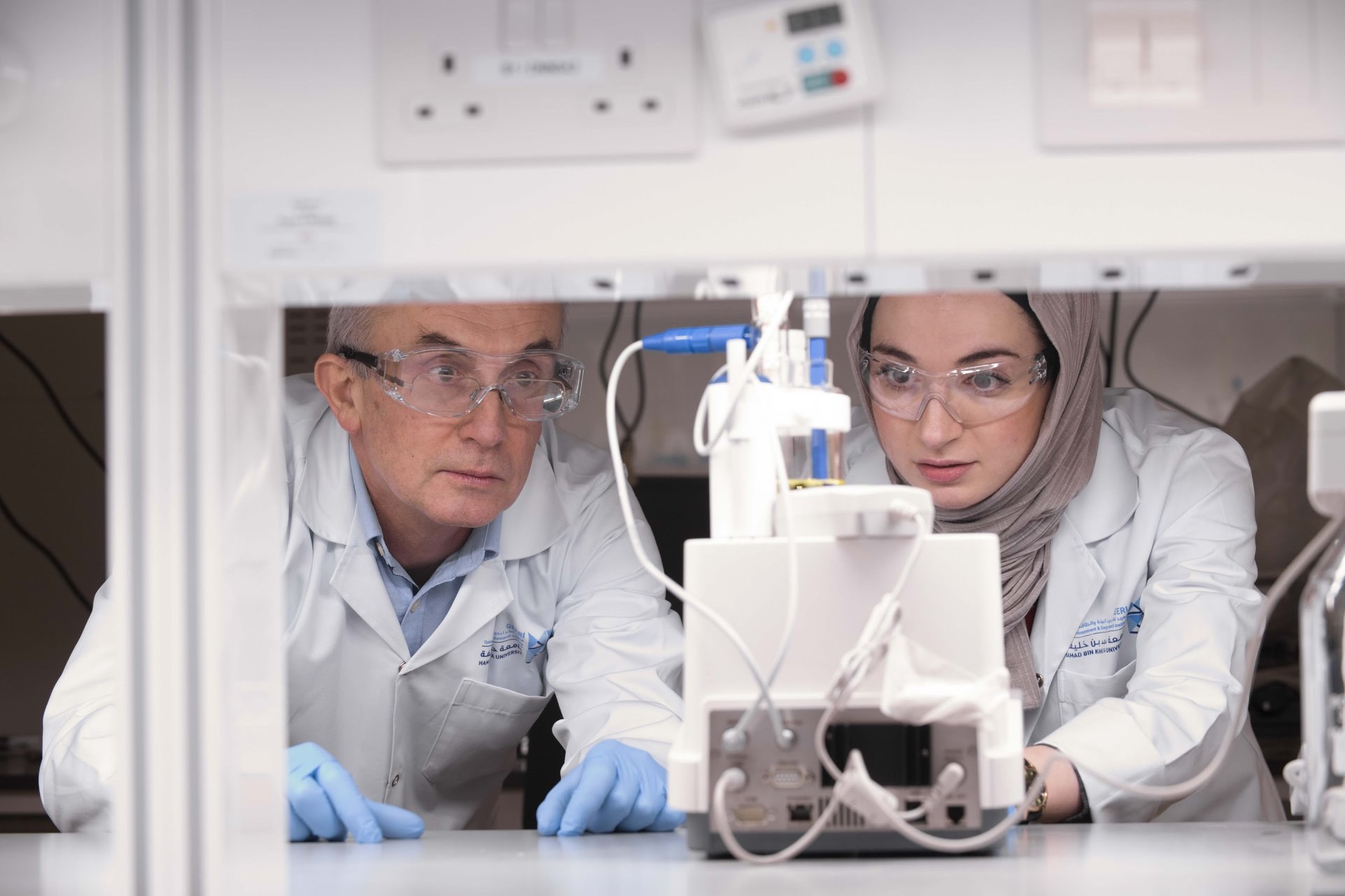
Wednesday marked two years since the day that Qatar was suddenly cut off from some of its neighbors in the Gulf and Middle East through the imposition of an unexpected and unjust blockade. The immediate and understandable reactions were shock and concern.
Mothers worried about getting milk for their children; doctors feared they would lose their patients because medications that came through land were blocked overnight. Families suddenly found themselves divided by a geographical line that, the day before, only mattered on a map. Qatar-based students from certain nations feared being unable to complete their degrees and all Qatari students in blockading countries were told to leave immediately.
But reaction and response are two different things. Twenty-four months on from the start of this blockade, Qatar has not only survived, but demonstrated how the strategic choices our country made decades ago have given us the resilience and determination to keep moving forward and thrive for the good of our country – in the name of knowledge.

Within Qatar Foundation, the organization I have the privilege to lead, there are students from more than 60 countries at Qatar Foundation’s partner universities – Northwestern, Georgetown, Virginia Commonwealth, Texas A&M, Weill Cornell, Carnegie Mellon, University College London, HEC Paris and our own homegrown Hamad Bin Khalifa University. When the blockade came into force, we saw first-hand how some of them were affected.
We had students studying abroad in Qatar who weren’t allowed by their home countries to return to Doha to complete their programs. One of our journalism students who was supposed to start their senior year was stopped from returning to Qatar by a blockading country. His 19 years in Qatar Foundation schools would have been all for no degree. Yes, the vast majority of our students saw no interruption to their education. But even one student whose education is impacted by factors beyond their control is one too many.
When the blockade began, we realized the urgency of supporting young people who were unsure about what the geopolitics suddenly meant for their education. Where necessary, we helped students find places on the home campuses of our universities to continue their studies. And we redoubled our efforts to make Qatar a destination for young knowledge-seekers from around the region and the world.
You might ask: Why is this important? Why, amid this blockade, is a Gulf state so focused on education? Why does it matter so much to us that students should be free to unlock their potential without constraints?
My mother, Her Highness Sheikha Moza bint Nasser, founded the Qatar Foundation nearly 25 years ago. She set her sights on educating young men and women from infancy to adulthood because she believed in the power of education to transform society. One of the most precious human rights is the right to knowledge, which is the basis of growth, both academically and personally. Through education, we can strive to make a positive impact on local and global society; through informed debate, innovation and creativity we can tackle the many challenges the world presents us with.

Qatar Foundation has partnered with some of the world’s best universities to establish campuses in Qatar that offer high-quality education in fields including medicine, engineering, the arts, computer science, international relations, and business, while also establishing a journalism school, which is unique to our region. These programs are just one aspect of an investment that has not been deterred in any way by the events of two years ago.
Since the start of the blockade, we have opened two new schools, the Qatar National Library, and Sidra Medicine – a pioneering hospital for women and children that is also home to vital medical research, such as last year’s development of a pioneering diabetes management protocol offering faster and safer access to diabetes treatment.
We have reinforced our role as a regional hub of innovation through the Arab Innovation Academy, hosted by QF member Qatar Science & Technology Park and launched after the blockade began. Its second edition, in January this year, brought together 160 young innovators, as well as experts and investors, from more than 30 countries.
And, just a few weeks ago, I proudly stood on a stage with almost 800 students graduating from Qatar Foundation’s partner universities, marking the end of one phase of their life and the start of a new one. Rather than seeing our international student numbers fall in the wake of the blockade, we had a higher proportion of students from outside Qatar this year than last year.
The past two years have made us think hard about why we chose to prioritize education so heavily, and what this focus has achieved for Qatar. In addition to creating opportunities for many curious young people, our investment in education has sent a message to our region and the world about how knowledge and innovation have no boundaries or constraints. We have been tested, and we believe we are prevailing – because, without realizing it, we had been preparing for this test for 25 years.
Source: Press Release
Follow us on our social media channels:
![]() @ILQlive
@ILQlive
![]() @ILQlive
@ILQlive
![]() @ILoveQtr
@ILoveQtr
![]() ILoveQatar
ILoveQatar

You have successfully registered your account!
Please confirm your e-mail address by clicking on the URL sent to you.The e-mail usually arrives in 5-10 minutes.
How ajeeb was that!? Thanks for contributing to our community! Your post will appear after we take a quick look!